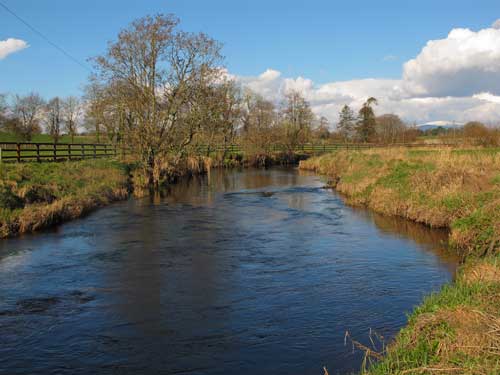From Tremendous Trifles, 1909
I remember one splendid morning, all blue and silver, in the summer holidays when I reluctantly tore myself away from the task of doing nothing in particular, and put on a hat of some sort and picked up a walking-stick, and put six very bright-coloured chalks in my pocket. I then went into the kitchen (which, along with the rest of the house, belonged to a very square and sensible old woman in a Sussex village), and asked the owner and occupant of the kitchen if she had any brown paper. She had a great deal; in fact, she had too much; and she mistook the purpose and the rationale of the existence of brown paper. She seemed to have an idea that if a person wanted brown paper he must be wanting to tie up parcels; which was the last thing I wanted to do; indeed, it is a thing which I have found to be beyond my mental capacity. Hence she dwelt very much on the varying qualities of toughness and endurance in the material. I explained to her that I only wanted to draw pictures on it, and that I did not want them to endure in the least; and that from my point of view, therefore, it was a question, not of tough consistency, but of responsive surface, a thing comparatively irrelevant in a parcel. When she understood that I wanted to draw she offered to overwhelm me with note-paper, apparently supposing that I did my notes and correspondence on old brown paper wrappers from motives of economy.
I then tried to explain the rather delicate logical shade, that I not only liked brown paper, but liked the quality of brownness in paper, just as I liked the quality of brownness in October woods, or in beer, or in the peat-streams of the North. Brown paper represents the primal twilight of the first toil of creation, and with a bright-coloured chalk or two you can pick out points of fire in it, sparks of gold, and blood-red, and sea-green, like the first fierce stars that sprang out of divine darkness. All this I said (in an off-hand way) to the old woman; and I put the brown paper in my pocket along with the chalks, and possibly other things. I suppose every one must have reflected how primeval and how poetical are the things that one carries in one's pocket; the pocket-knife, for instance, the type of all human tools, the infant of the sword. Once I planned to write a book of poems entirely about the things in my pockets. But I found it would be too long; and the age of the great epics is past.
I crossed one swell of living turf after another, looking for a place to sit down and draw. Do not, for heaven's sake, imagine I was going to sketch from Nature. I was going to draw devils and seraphim, and blind old gods that men worshipped before the dawn of right, and saints in robes of angry crimson, and seas of strange green, and all the sacred or monstrous symbols that look so well in bright colours on brown paper. They are much better worth drawing than Nature; also they are much easier to draw. When a cow came slouching by in the field next to me, a mere artist might have drawn it; but I always get it wrong in the hind legs of quadrupeds. So I drew the soul of the cow; which I saw there plainly walking before me in the sunlight; and the soul was all purple and silver, and had seven horns and the mystery that belongs to all the beasts. But though I could not with a crayon get the best out of the landscape, it does not follow that the landscape was not getting the best out of me. And this, I think, is the mistake that people make about the old poets who lived before Wordsworth, and were supposed not to care very much about Nature because they did not describe it much.
They preferred writing about great men to writing about great hills; but they sat on the great hills to write it. They gave out much less about Nature, but they drank in, perhaps, much more. They painted the white robes of their holy virgins with the blinding snow, at which they had stared all day. They blazoned the shields of their paladins with the purple and gold of many heraldic sunsets. The greenness of a thousand green leaves clustered into the live green figure of Robin Hood. The blueness of a score of forgotten skies became the blue robes of the Virgin. The inspiration went in like sunbeams and came out like Apollo.
Chastity does not mean abstention from sexual wrong; it means something flaming, like Joan of Arc. In a word, God paints in many colours; but He never paints so gorgeously, I had almost said so gaudily, as when He paints in white. In a sense our age has realised this fact, and expressed it in our sullen costume. For if it were really true that white was a blank and colourless thing, negative and non-committal, then white would be used instead of black and grey for the funeral dress of this pessimistic period. We should see city gentlemen in frock coats of spotless silver linen, with top hats as white as wonderful arum lilies. Which is not the case.
Meanwhile, I could not find my chalk.

  |
| The White Cliffs of Dover (also chalk) |
 |
| Chalk walk: Glory be to God for chalky things! |
 |
| Pieces of Chalk: The Uffington Horse on White Horse Hill. 3,000 years old and still galloping. G.K. Chesterton's greatest poem is The Ballad of the White Horse. |
No comments:
Post a Comment